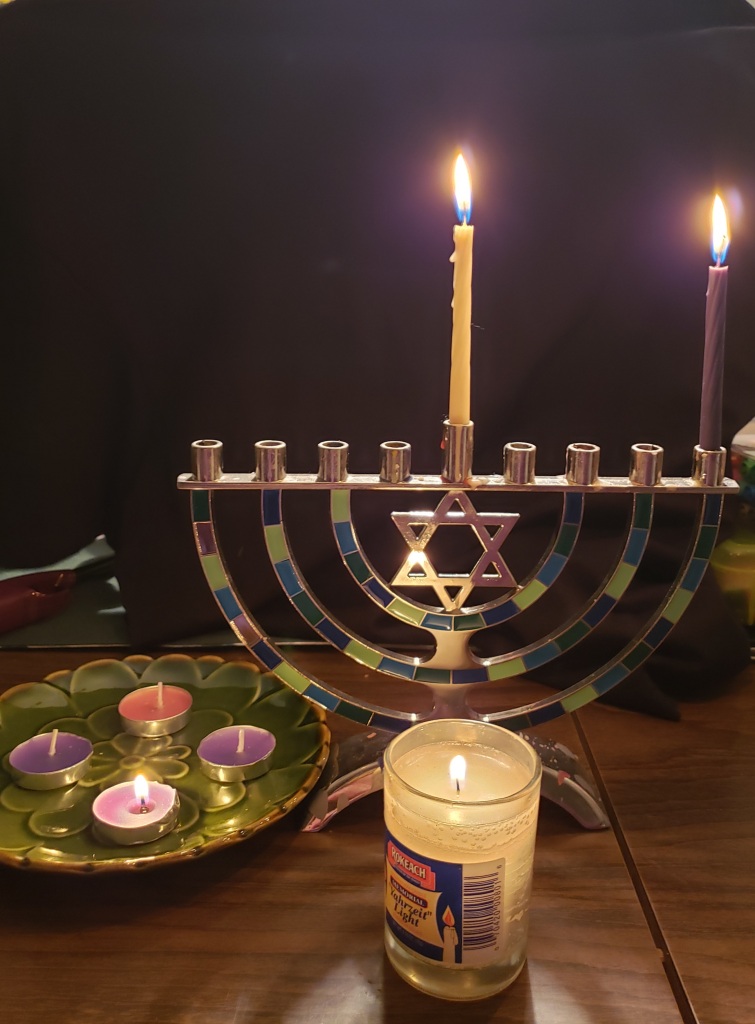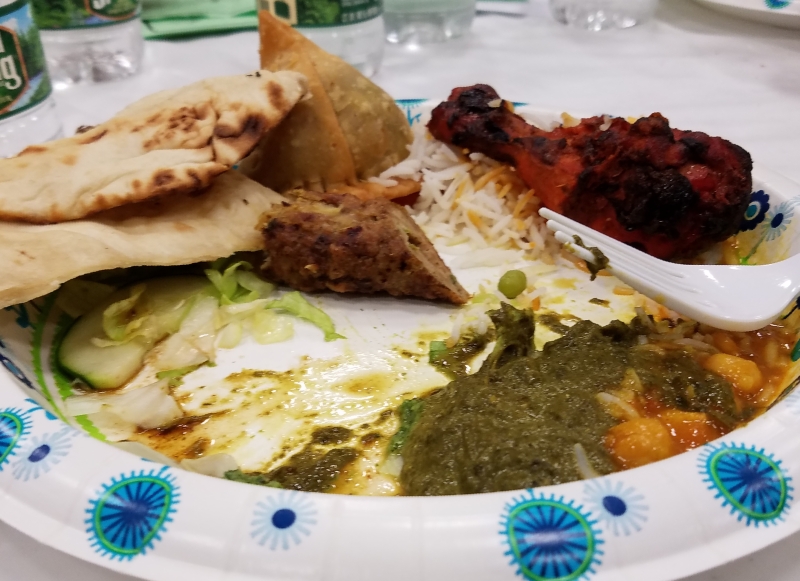Today marks the end of the the Week of Christian Unity. As called upon in Peter, “to proclaim the mighty works of the one who has called us out of darkness into his marvelous light,” we can join together under the ecumenical banner of Christian unity.
From that joining we can move to the other faiths we have common-ness with as well as those we have no commonality with.
Interfaith and acceptance isn’t changing one’s beliefs, but including everyone regardless of their religion or non-religion as I’ve expanded the thought, and whatever else separates us..
Recently I attended a gathering sponsored by the Interfaith Community in my local area. It was described as “moving beyond tolerance, and beyond coexistence, to affirmation, acceptance, mutual support and cooperation among peoples of faith … literally to claim each other as sisters and brothers of G-d.” While this was faith-based, that is no reason to think that non-faith people or faith groups not mentioned by name are excluded from this type of conversation.
The presenters included a Rev. B, Rabbi K, and Imam G. In addition to their religious titles and education, the rabbi and the imam are also professors at a local college and hold degrees in religious studies. In the audience were several people I had seen before at workshops and retreats including our Bishop Emeritus, who championed interfaith cooperation and acceptance (including with the Jewish faith when it was an unpopular position to hold) in his thirty-seven years as Bishop.
The next thing I should mention is that this gathering/lecture had not been planned in the two months prior to the date. It became apparent that this type of gathering and discussion was needed with the onslaught of anti-Muslim rhetoric that is becoming prevalent in our country today as well as the tremendous rise of anti-semitism across this country and globally.
This will serve as my thoughts interspersed with my summation of the gathering and a paraphrasing of what was said by many in attendance. The only statements that are verbatim will appear within quotation marks.
I’ll begin where the Reverend began:
Sarah Palin endorsed Donald Trump for President. We chuckled and eye rolled, but we were stopped cold when we were reminded of another disenfranchised group courted in the same way as Palin/Trump that gave rise to someone we all remember – Hitler. Megalomaniac. Demagogue. This was not hyperbole; or ironic. This was very serious. This was something to think about.
An austere beginning, and then he (followed by the Rabbi) continued with this quotation:
“Silence is sometimes betrayal.” – Martin Luther King
We cannot sit idly by and hope that it gets better, or that someone else will stand up for what is right; to speak out for someone else.
“First they came for the Socialists, and I did not speak out –
Because I was not a Socialist.
Then they came for the Trade Unionists, and I did not speak out –
Because I was not a Trade Unionist.
Then they came for the Jews, and I did not speak out –
Because I was not a Jew.
Then they came for me – and there was no one left to speak for me.”
– Martin Niemoller
Martin Niemoller was a Lutheran Pastor who spent eight years in a Nazi concentration camp. Some of his statements prior to that can be problematic, but he never shirked from discussing them or the changes in his views formed by the turning point of having survived the concentration camps.
If we’re not standing together, we stand apart in fear. We’re all concerned for me, but “I want them to stand with me or I’ll be standing alone.” [Rabbi K]
We must remember that we are all individuals, and individuals are approachable. We can’t dismiss a whole group of people, and that includes the ones we don’t agree with; even Fox News.
We must acknowledge that everyone has a conscience; a heart; mind; they are individuals.
It can be challenging to be a person of faith. It can also be challenging to be an American. It is also challenging to be a person who doesn’t have religious faith in this increasingly divisive to those who are different.
With the Patriot Act, we decided it was okay to profile, to strip individuals of their rights. Whenever we’re reminded of Japanese internment camps or McCarthyism, we’re told that we’ve moved beyond that bias.
But have we?
We must remember that our social – political – economical interests are all intertwined. Our destinies are intertwined on a global level. The world is too small to be isolationists; or imperialists.
We need to look for an interfaith, grassroots, educational movement of inclusivity.
Looking at the middle East, it’s imperative to remember that context is paramount. The Middle East is a land bridge on the way to Europe. Without it being home to the three major religions in the world, it would still be a land in strife. The political division by Europeans didn’t help matters in much the same way that the partitioning of Africa has come to a similar head in recent years.
Since admittedly, most of us have less knowledge of Islam and Muslims, it might be important to hear some unbiased facts about the Muslim faith and the Koran.
The Koran is 1400 years old and as I mentioned context is paramount. It has its governing and foundational verses. There is an academic and literary process to analyze and interpret the Koran. There is a freedom to choose, a G-d given free will that contributes to the analysis of the Koran.
The first thing to know is that Muslims have an understanding of the people of the book – those people who are “receiving of the Word/Scriptures from G-d.” [Imam G] This includes all Jews and Christians. The Torah came first, then the Gospels, and then the Koran.
Any “bigoted dialogue of other faiths, such things are in completely contradictive with foundational verses in the Koran.” [Imam G]
Whoever believes in G-d – Jews, Christians, anyone, be happy in this life and in the next.
We’ve followed a mixed path, but we have a common G-d. We have shared foods. We believe in marriage and building families.
Warfare is “never based on religious difference.” It is a last resort “for the protection of human rights and justice.” [Imam G]
All three of the Abrahamic faiths believe in salvation, families and marriage, and the protection of our places of worship.
Looking at the Pillars of Islam, where is jihad mentioned? Does Islam equal jihad? It does not. It’s not even in the top ten of the pillars.
Education is where it begins to bring us together and refuse to let us be separated. We need to heed the call to claim others, to protect others because if we don’t eventually we’ll be someone else’s other.
Postscript: This morning as I was finishing up the editing, I came across this Washington Post article discussing how a college student of the Muslim faith continues amid anti-Muslim rhetoric and the pressure to “fit in” as an American from both inside and outside her family.



